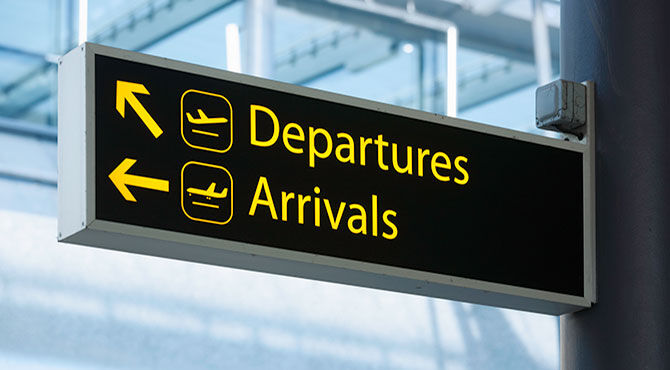EU referendum results in net migration decrease
Net migration to the UK saw a substantial fall to 248,000 last year – down 84,000 on 2015 – as the number leaving the country increased and arrivals from eastern and central Europe fell dramatically.

Jobs most common reason for migration
Work remained the most common reason for migration: 275,000 people came into the UK for work in 2016. Of those, 180,000 had a definite job, while the total number of arrivals looking for work – 95,000 – was down 35,000 on the 2015 figure.Although the government will welcome the decrease in the run-up to June’s general election, the net migration total is still well over double Prime Minister Theresa May’s stated target of getting the figure to below 100,000.Publication of the data coincided with research showing that migrant workers from Central and Eastern Europe were more than three times less likely to be absent from work than those born in the UK.But the University of Bath research found the effect was only temporary and that, after between two and four years, migrants’ absences from work mirrored those of indigenous Britons.Related news:
- Businesses express fears over Tories' new immigration clampdown
- Pensions deficit improves as life expectancy growth stalls: PwC
- Survey shows European business confidence growing at last
Migrant work ethic
Dr Chris Dawson, senior lecturer in Business Economics at the University of Bath, said, “This is the first study with concrete evidence on the existence of the migrant work ethic.“It backs up managers’ perceptions that Polish and other Central and Eastern European migrants are harder working than UK employees, but importantly only for around two years from their arrival in the UK.“The study shows that the common view that UK workers are lazy compared to migrant workers is misconceived; in fact, migrants are temporarily working extra hard to offset the challenges they face when they first enter the UK job market.“We clearly see in the research that migrants new to the UK put in a couple of years of hard work, before a better understanding of our culture and job market means they adopt the same work ethic as native workers.”For related news and features, visit our Brexit section.Access hundreds of global services and suppliers in our Online Directory Get access to our free Global Mobility Toolkit
Get access to our free Global Mobility Toolkit 
©2026 Re:locate magazine, published by Profile Locations, Spray Hill, Hastings Road, Lamberhurst, Kent TN3 8JB. All rights reserved. This publication (or any part thereof) may not be reproduced in any form without the prior written permission of Profile Locations. Profile Locations accepts no liability for the accuracy of the contents or any opinions expressed herein.

























